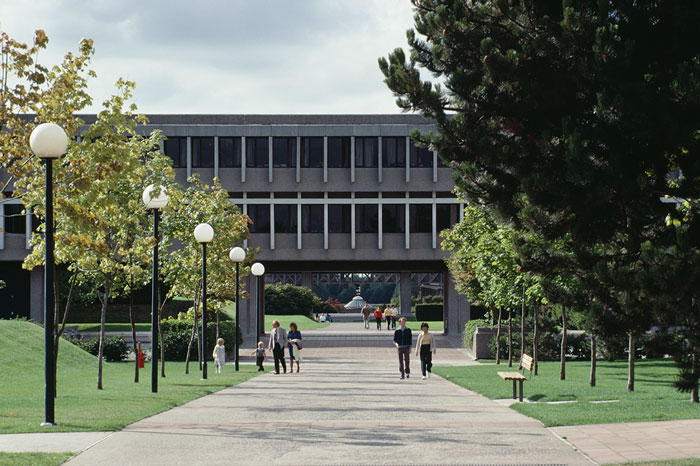Legislation
 The University Act governs British Columbia's public research-intensive universities (Simon Fraser University, University of British Columbia, University of Northern British Columbia and University of Victoria) and most of its teaching-intensive universities (Capilano University, Emily Carr University of Art and Design, Kwantlen Polytechnic University, University of the Fraser Valley and Vancouver Island University). The Act gives the universities the authority to grant degrees, diplomas, and certificates and to call themselves "universities."
The University Act governs British Columbia's public research-intensive universities (Simon Fraser University, University of British Columbia, University of Northern British Columbia and University of Victoria) and most of its teaching-intensive universities (Capilano University, Emily Carr University of Art and Design, Kwantlen Polytechnic University, University of the Fraser Valley and Vancouver Island University). The Act gives the universities the authority to grant degrees, diplomas, and certificates and to call themselves "universities."
The Royal Roads University Act establishes Royal Roads University (RRU). Some of its responsibilities are the same as for the other universities, but, instead of a senate, RRU has an academic council and several of the powers conferred on the senate in a university are assigned to the president.
The Thompson Rivers University Act establishes Thompson Rivers University (TRU). Under the Act, TRU also assumes responsibility for the provincial open and distance learning mandate of the British Columbia Open University and the Open College. As with RRU, many of TRU's responsibilities are the same as for the other universities, but TRU operates with a senate and a Planning Council for Open Learning.
The authority of each university to govern itself through the operations of a board of governors and a senate is outlined in the legislation. The academic governance of the university is vested in the senate.
Under the legislation, the Minister is prohibited from interfering in the exercise of a university's power to set academic policies and standards, establish standards for admission and graduation, and select and appoint staff. However, the Minister is required to approve all new degree programs.
All public universities must report annually to the Minister. The Minister can require a university to provide reports and other information that the Minister considers necessary to carry out the Minister's responsibilities in relation to universities. Since 2004-05, public postsecondary institutions prepare their own annual service plan reports to outline activities undertaken during the previous fiscal year toward achieving goals and to describe any developments that may have emerged, providing information for decision makers within the ministry and for the public.
Affiliation
 A few private theological postsecondary colleges are affiliated with a public university (University of British Columbia). In such instances, the granting of affiliation means that the private theological colleges meet the criteria for affiliation established by the senate of the university, but it does not imply any scrutiny or approval of the course offerings of the private theological colleges by the university senate.
A few private theological postsecondary colleges are affiliated with a public university (University of British Columbia). In such instances, the granting of affiliation means that the private theological colleges meet the criteria for affiliation established by the senate of the university, but it does not imply any scrutiny or approval of the course offerings of the private theological colleges by the university senate.
External and internal review
Universities must have internal program review procedures based on institutional policies and procedures including mandatory review of all new programs by a university senate. Internal program review procedures are confirmed by quality assurance audits overseen by the Degree Quality Assessment Board (DQAB). The quality assurance process audit (QAPA) is conducted by a panel of peer institutions. The panel assesses the institution's quality assurance policies, procedures and practices and determines whether the institution is following its policies and procedures. The QAPA was implemented in 2016 and it is anticipated that all public post-secondary institutions will be reviewed once every eight years.
New degree program proposals, as well as substantively revised programs, must be submitted to the Minister for approval. Approval of new degree programs may come about in one of two ways. If the institution does not qualify for expediated review (exempt status), it must submit its new degree program proposals to the DQAB for review. After performing its review, the Board determines whether the new degree meets established criteria and makes its recommendations to the Minister. If the institution has been granted exempt status to a specified degree level by the Minister, all of its new degree program proposals at or below that degree level go directly to the Minister for approval. The Minister may refer the proposal to the DQAB for review if the Minister has any concerns. Details about exempt status and the DQAB are available on the Ministry Web site.
Professional accreditation
Many of Canada's regulated professions have associations that conduct accreditation reviews of postsecondary programs pertaining to their professions. In these instances, accreditation teams from the professions review reports provided by the institutions and may conduct on-site visits in accordance with the policies and procedures established by the professions.